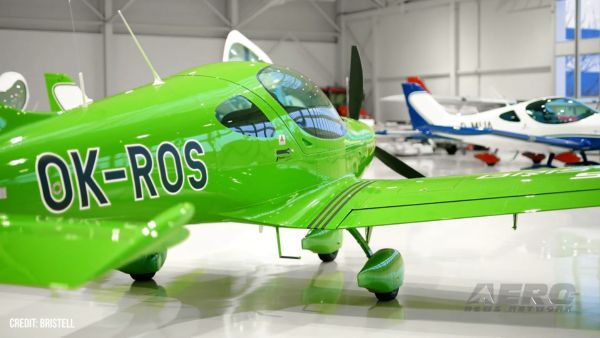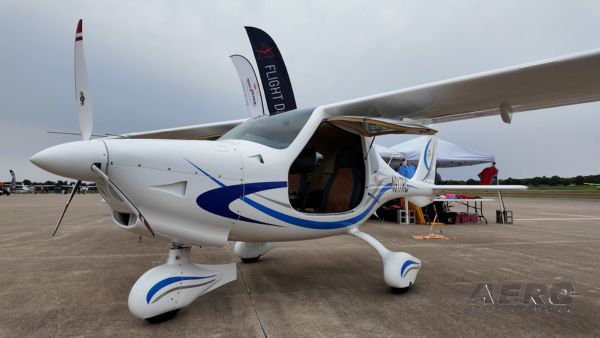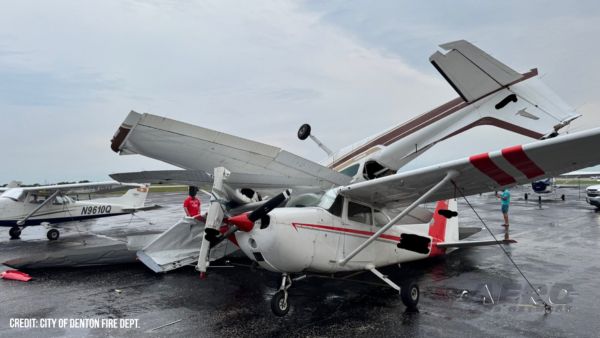Fri, Jun 07, 2024
Large Heavy-Duty Deer Feed Bag Obstructed The Radiator Inlet And Restricted Its Designed Cooling Capability
Location: Manhattan, Kansas Accident Number: CEN24LA031
Date & Time: October 21, 2023, 08:28 Local Registration: N52631
Aircraft: Powrachute Pegasus Aircraft Damage: Substantial
Defining Event: Miscellaneous/other Injuries: 2 Serious
Flight Conducted Under: Part 91: General aviation - Personal

Analysis: Before departing on the local area flight in the experimental powered parachute, the pilot installed a large heavy-duty deer feed bag that partially covered the radiator. He was concerned that the experimental engine would run “too cold” during the flight unless the radiator was partially covered.The powered parachute was flying about 400 ft above ground level when the pilot noticed that the engine overheat light illuminated. The pilot decided to continue flying.
Shortly after, the engine sustained a total loss of engine power. The pilot performed a forced landing to a road and the powered parachute came to rest upright on a
grass embankment near the road. The powered parachute sustained substantial damage to the fuselage and engine mount. Postaccident examination revealed no mechanical anomalies with the engine. The large heavy duty deer feed bag was found covering about 3/4 of the radiator surface area and was secured with two bungee cords. According to the airframe and engine manufacturers, neither company has published any guidance on covering up the radiator for flight operations.
The large heavy-duty deer feed bag obstructed the radiator inlet and restricted its designed cooling capability. The engine then did not have a source of adequate cooling, which likely resulted in the engine overheating and a total loss of engine power. The pilot noticed the engine overheat light was illuminated and continued with normal flight operations when guidance from the engine manufacturer states to perform a precautionary landing.
Probable Cause and Findings: The National Transportation Safety Board determines the probable cause(s) of this accident to be -- The pilot’s improper modification of the engine cooling system that resulted in an engine overheat and total loss of power. Contributing to the accident was the pilot’s decision to continue the flight after the engine overheat light illuminated instead of performing a precautionary landing.
FMI: www.ntsb.gov
More News
"This first FAA certification enables us to address the pilot shortage crisis with modern training solutions. Flight schools need alternatives to aging fleets with 40-year-old desi>[...]
Manufacturer Works to Set Up Shop in California Personal aviation company Jetson recently completed the first-ever delivery of its ONE electric vertical takeoff and landing (eVTOL)>[...]
Workforce Development Partnership Expands To Meet Demand Hawaiian Airlines and Honolulu Community College announced an expansion of their workforce development program with their l>[...]
Manufacturer Wiggles Its Way Into the US Flight Training Market Czech plane maker Bristell was awarded its first FAA Type Certification for the B23 two-seater, assisting its effort>[...]
Transforms Lunar Or Martian Regolith Into Materials For Self-Sustainment Blue Origin announced that its Blue Alchemist resource utilization system successfully completed its Critic>[...]
 Aero-News: Quote of the Day (09.12.25)
Aero-News: Quote of the Day (09.12.25) First-ever Jetson ONE eVTOL Delivery Goes to Oculus Founder
First-ever Jetson ONE eVTOL Delivery Goes to Oculus Founder Hawaiian Airlines, Honolulu CC Start Mx Tech Program
Hawaiian Airlines, Honolulu CC Start Mx Tech Program Bristell Receives First FAA Part 23 Certification for its B23 Trainer
Bristell Receives First FAA Part 23 Certification for its B23 Trainer Blue Alchemist Successfully Completes Critical Design Review
Blue Alchemist Successfully Completes Critical Design Review



